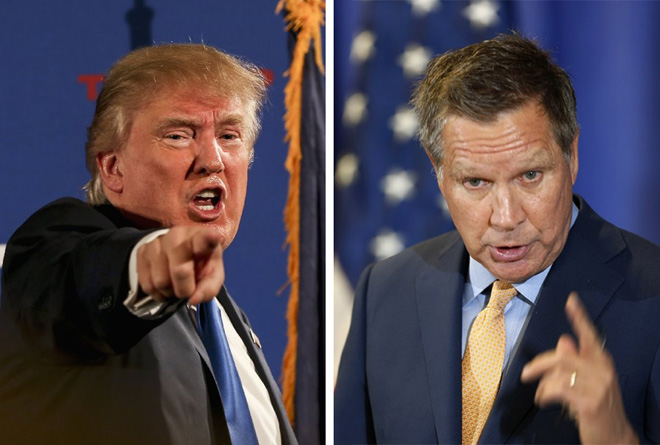President Donald J. Trump has experienced constant scrutiny from the moment he began his historic campaign. Republicans and Democrats alike have called for his ousting; notably opinionated Maxine Waters (D-CA) has referred to the President as “the most deplorable person” she knows, and Senator Jeff Flake (R-AZ) published a book, Conscience of A Conservative, describing the President’s assault on traditional GOP values. To compound the issue, the media pounces on the President’s miscues, self-inflicted or otherwise, at every opportunity. Some have surmised from this overwhelmingly negative coverage that the Republican Party must oppose Trump’s reelection bid in order to remain a viable option. However, the GOP would be prudent to support the President completely, as Trump’s administration has propelled much conservative legislation forward; in addition, a fractious primary would exacerbate existing strife within the Party of Lincoln.
Trump has not lost much of his luster with his base; according to Gallup opinion polls, Trump has maintained his solid support amongst Republicans since January, with little evidence of future slippage. He polls consistently above 80% with self-described conservatives. If the Access Hollywood tapes did not drive away voters in droves, no presidential action could. Trump himself said that he “could shoot somebody and (he would) not lose voters” due to his cult of personality. Much to conservatives’ approval, Trump has fulfilled many campaign promises. He has appointed an impressive, originalism-abiding judge to the Supreme Court and beefed up security along the southern border. His generals have mitigated the threat of ISIS significantly. In the future, Trump intends to reform the tax code and find a humane solution for illegal aliens in America. Most importantly, American foreign allies praise Trump highly. In East Asia, Japanese Prime Minister Abe has praised Trump’s economic plans: “With the birth of the Trump administration, a new genesis will be built between Japan and the U.S.” With respect to the President’s address at the United Nations General Assembly (UNGA), Israeli prime minister Benjamin “Bibi” Netanyahu said that “in over 30 years in (his) experience with the UN, (he) never heard a bolder or more courageous speech.”
Not all of Trump’s initiatives, such as the six-country travel ban and his occasionally juvenile antics on social issues have garnered the cheers of the GOP, but Republican voters continue to support the populist candidate. In Alabama, potential senator Roy Moore, who promoted the patent falsehood that President Obama was born in Kenya, won the primary race handily on a Trumpian platform. If anything, voters are dismayed by establishment Republicans who are anything but lightning rods for controversy. Even Senator Flake, the quintessential Reagan-molded Republican, has drawn much ire for his book, and Sheriff Joe Arpaio, recently pardoned by Trump despite evidence of human rights abuse, has suggested that he will run for the former’s seat. Trump has complimented Arpaio repeatedly due to their shared stance on southern border security.
If another candidate upsets Trump in the primary, Republicans would jeopardize the most potent advantage available: incumbency. Any sitting official enters a race with a slight edge; historically, incumbents win at a much higher percentage than newcomers. In addition, challenges in presidential primaries have ended dourly for both parties. In 1980, President Carter, his approval rates plummeting, faced the Lion of the Senate: Ted Kennedy (D-MA). Kennedy, pushing Carter further left, divided the Democratic Party. While Kennedy won only a handful of states, he refused to endorse the President until the final day of the convention. The ensuing November landslide, in which President Reagan won resoundingly and Republicans gained twelve Senate seats, may have been averted had Kennedy sat out. In 2016, Bernie Sanders (D-VT) interrupted the anticipated coronation of former Secretary of State Hillary R. Clinton; whereas pundits had assumed no viable opposition would develop, Sanders won seven elections in a row. By the end of the primary, Sanders was attacking Clinton relentlessly over her ties to special interest groups. At the convention, many of his delegates, fuming over questionable decisions by Democratic leaders Debbie Wasserman-Schultz (D-FL) and Donna Brazile, booed the presumptive nominee. According to YouGov, nearly 10% of Sanders supporters, citing Clinton’s controversial past, cast a ballot in favor of President Trump, and that figure excludes those who either stayed home on election day or preferred Jill Stein (GR-MA). Frankly, that margin may have cost Clinton the election. The rift between Tea Partiers and establishment Republicans would widen with a primary challenge; if a moderate like John Kasich (R-OH) siphoned off even a small percentage of primary voters, the results for Republicans would be devastating. To avoid this calamity, Trump should have the full support of his party behind him.
Ultimately, the GOP should aim to reelect Trump provided he continues to remain within the boundaries of the presidency. He may not appear the most likable candidate at times, and a few of his positions are self-admittedly unprecedented, but, for better or worse, he epitomizes the current Republican Party. Much can change in the two years until the Iowa straw polls, and Republicans must manage a whole host of issues: foreign threats, 2018 midterms, and domestic policy reform. As the circumstances appear presently, however, President Trump represents the best hope for the GOP.





